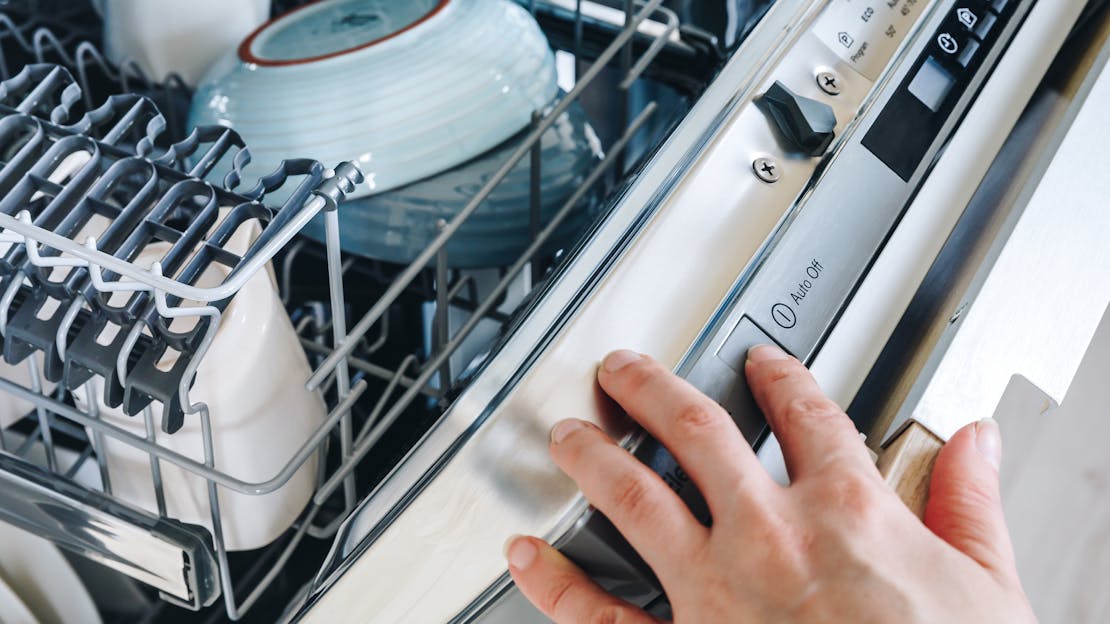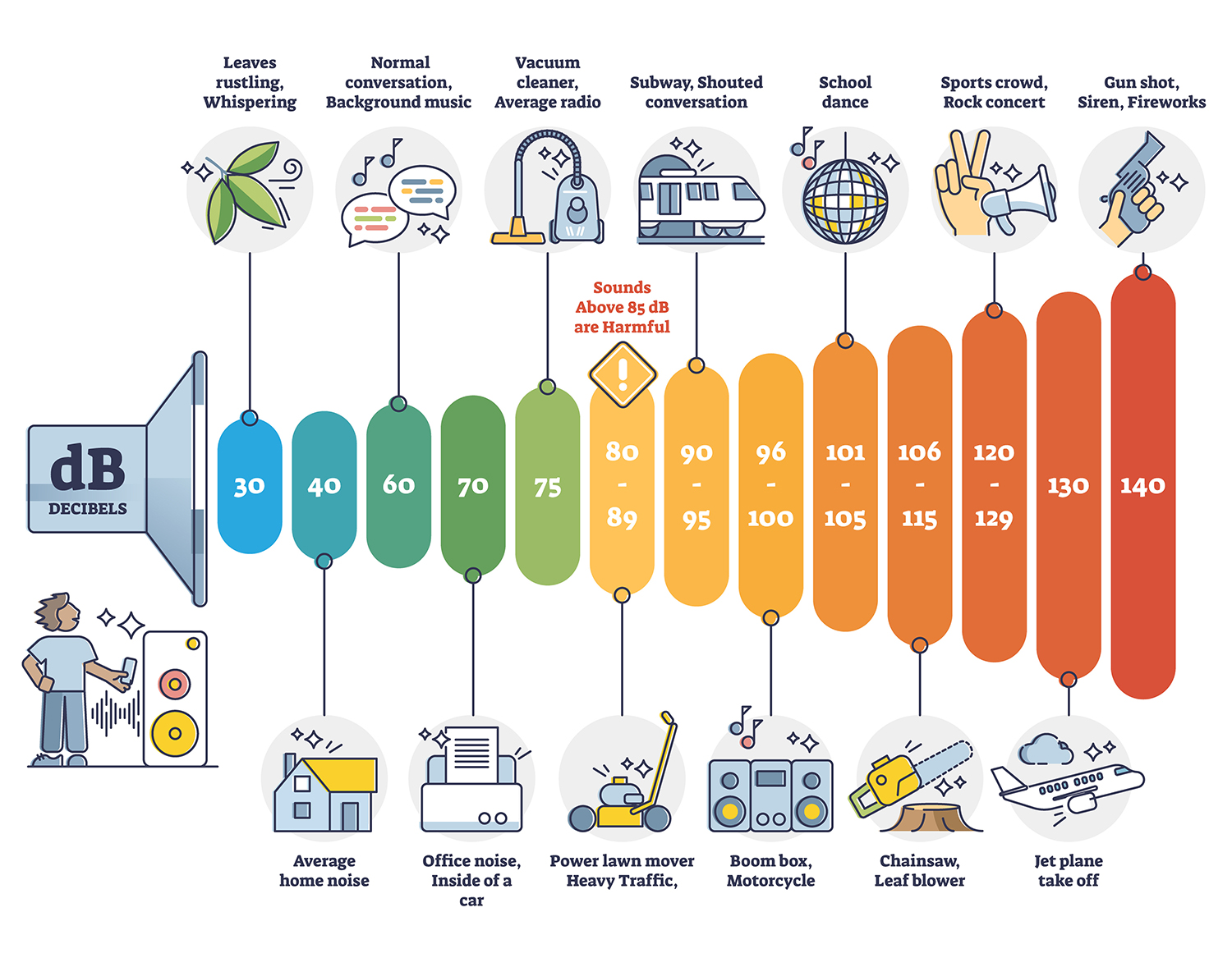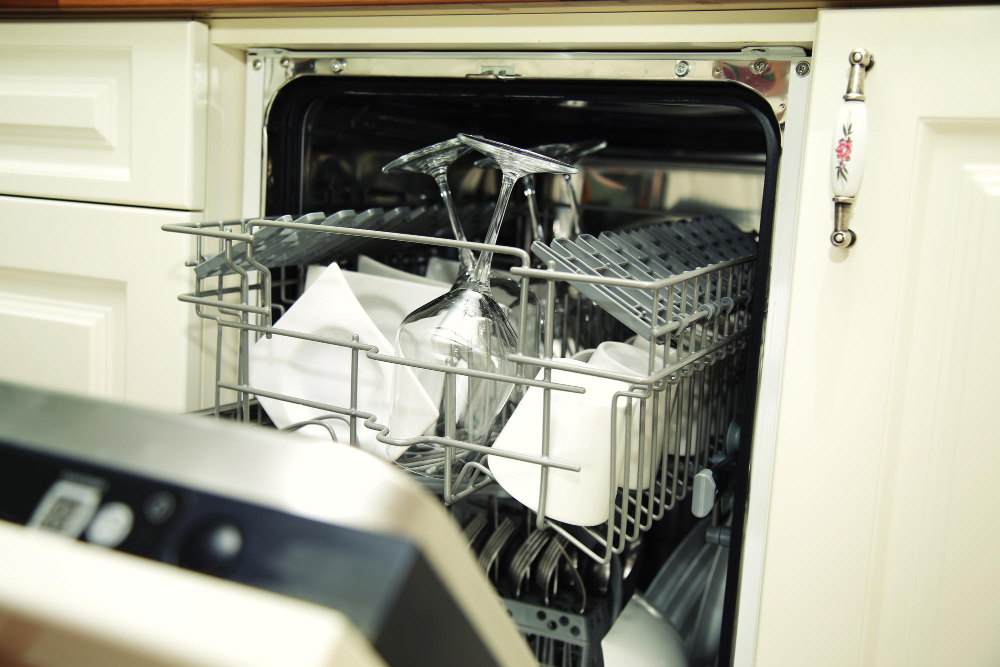
Loud dishwasher? Everything you need to know about noise level
The gentle hum of a dishwasher can be a soothing sound, signifying that your dirty dishes are getting a thorough cleaning. However, the noise level of a dishwasher can vary significantly from one model to another, and this seemingly minor detail can have a profound impact on your daily life. In this article, we'll delve into everything you need to know about noise levels in dishwashers, from why it matters to how to choose the right one for your home.
Why Noise Levels Matter on a Dishwasher
Why Do Noise Levels Matter?
Noise levels in dishwashers matter because they can directly affect your comfort and well-being. If you have an open-plan kitchen or a small living space, a noisy dishwasher can disrupt conversations, disturb your peace, and make it difficult to concentrate on other tasks while it's running.
The Impact on Everyday Life
Consider this scenario: you've just prepared a delicious meal, and now it's time to clean up. You load the dishwasher, turn it on, and sit down to enjoy your dinner. If your dishwasher is particularly noisy, the clattering and whooshing sounds can become a constant annoyance throughout your meal, diminishing the overall dining experience.
Correlation Between Noise and Quality
It's worth noting that noise levels can be indicative of a dishwasher's overall quality. High-quality dishwashers are designed to operate quietly, signalling superior engineering and insulation. Therefore, paying attention to noise levels is not just about comfort but also about choosing a reliable and efficient appliance.
Decibel (dB) Rating for Dishwashers
Understanding Decibels
To quantify noise levels accurately, dishwashers are rated in decibels (dB). Decibels are a unit of measurement that express the intensity of sound. The lower the decibel rating, the quieter the dishwasher. For reference, a typical conversation at home is around 60 dB, while a whisper is about 30 dB.

Common Decibel Ratings for Dishwashers
Dishwashers typically fall into three noise level categories:
- Quiet Dishwashers (42-46 dB): These are almost whisper-quiet and won't disrupt your daily activities.
- Standard Dishwashers (47-52 dB): They produce moderate noise levels, similar to background conversation.
- Noisy Dishwashers (53+ dB): These can be quite loud and may be noticeable throughout your home.
Keep in mind that while quieter dishwashers are desirable for most households, the specific noise level that's acceptable to you may depend on your kitchen's layout and your personal preferences.
How Dishwasher Noise Is Rated
Dishwasher noise levels are measured during their standard washing cycle, and the rating is usually displayed prominently on the appliance or in the product specifications. Understanding this rating is crucial when comparing different models and making an informed decision.
Factors Influencing Dishwasher Noise
Internal Components
Dishwasher noise is influenced by various internal components. These include the motor, pump, and spray arm. High-quality dishwashers often feature advanced technologies to minimize noise during their operation.
Design and Insulation
Dishwasher manufacturers invest in innovative design and insulation to reduce noise. Double-walled stainless steel tubs and sound-dampening materials are commonly used to muffle sounds effectively.
Motor Type and Location
The type and location of the motor also play a significant role in noise levels. Some dishwashers have inverter motors that are quieter than traditional ones. Dishwashers with top-mounted motors are generally quieter than those with bottom-mounted ones.
Quiet vs. Standard vs. Noisy Dishwashers
When it comes to noise levels, dishwashers can be categorized into three main types:
Quiet Dishwashers (42-46 dB)
Quiet dishwashers are the ideal choice for homes with open-plan kitchens or where peace and tranquillity are a priority. They allow you to enjoy your home without being disturbed by the dishwasher's operation.
Standard Dishwashers (47-52 dB)
Standard dishwashers strike a balance between noise and affordability. They are suitable for most households where a moderate level of noise is acceptable.
Noisy Dishwashers (53+ dB)
Noisy dishwashers may be more budget-friendly but are best suited for spaces where noise isn't a significant concern, such as basements or laundry rooms.
The choice between these types depends on your lifestyle, kitchen layout, and personal preferences.

Benefits of Quieter Dishwashers
Enhanced Peace and Comfort
One of the most significant benefits of quieter dishwashers is the enhanced peace and comfort they provide. You can carry on conversations, watch TV, or work in the kitchen without the disruptive noise.
Better Sleep Quality
If your dishwasher runs at night, a quieter model won't disturb your sleep, ensuring you wake up refreshed.
Energy Efficiency
Quieter dishwashers often use advanced technologies that improve energy efficiency, helping you save on electricity and water bills in the long run.
Investing in a quieter dishwasher can significantly improve your overall quality of life and contribute to a more enjoyable home environment.
How to Choose the Right Noise Level
Consider Your Kitchen Layout
Start by considering your kitchen layout. If your kitchen is open to the living or dining area, a quiet dishwasher is usually the best choice.
Personal Preferences
Think about your personal preferences. If you're sensitive to noise or enjoy a peaceful environment, prioritise a lower decibel rating.
Budget
While quieter dishwashers often come at a higher price point, there are mid-range models that offer a good balance between noise level and affordability.
Check Product Specifications
Always check the product specifications and decibel rating when shopping for a dishwasher. This information is readily available and can guide your decision.
By taking these factors into account, you can choose a dishwasher that aligns with your needs and preferences.
Maintenance Tips for Noise Reduction
Regular Cleaning
Regularly clean the filter, spray arms, and interior of your dishwasher to ensure smooth and quiet operation. Accumulated debris can lead to increased noise.
Inspect and Tighten Components
Periodically inspect and tighten any loose components, such as screws or brackets, to prevent rattling or vibrations.
Address Common Issues
If you notice unusual noises, investigate and address common issues such as loose cutlery or dishes, worn-out spray arms, or damaged seals.
Professional Servicing
If your dishwasher becomes excessively noisy despite maintenance efforts, consider professional servicing to diagnose and fix any underlying problems.
Proper maintenance can significantly extend the lifespan of your dishwasher and keep it operating quietly.
Conclusion
In conclusion, the noise level of your dishwasher can significantly impact your daily comfort and overall home experience. Whether you opt for a quiet, standard, or noisy dishwasher, understanding the decibel rating and considering factors like your kitchen layout and personal preferences are crucial in making the right choice.
By investing in a quieter dishwasher and maintaining it properly, you can create a more peaceful and enjoyable living space. Remember that choosing the right dishwasher is not just about convenience; it's also about enhancing the quality of your life.
Frequently Asked Questions
What causes my dishwasher to be so noisy during operation?
- Internal Components: Components like the motor, pump, and spray arm can generate noise as they operate.
- Design and Insulation: The quality of insulation and design of the dishwasher can impact noise levels. High-quality dishwashers invest in double-walled stainless steel tubs and sound-dampening materials to reduce noise.
- Motor Type: Dishwashers with inverter motors tend to be quieter than those with traditional motors.
- Dish Placement: Improperly loaded dishes or loose items can create noise as they move during the wash cycle.
Is it normal for dishwashers to be loud, or should they operate quietly?
How do I measure the noise level of my dishwasher?
What is the average decibel rating for a quiet dishwasher?
Can I reduce the noise of my existing dishwasher without buying a new one?
- Maintenance: Regularly clean the filter, spray arms, and interior to prevent debris build-up.
- Inspect Components: Tighten any loose screws or brackets to minimize rattling.
- Load Dishes Properly: Ensure dishes are loaded correctly to prevent them from clattering during the wash cycle.
- Check for Damaged Parts: Inspect for damaged seals, worn-out spray arms, or other components that may need replacement.
What role does proper dishwasher installation play in noise levels?
How can I address unusual noises or rattling coming from my dishwasher?
- Inspecting Load: Check for loose items or utensils that might be causing the noise.
- Cleaning: Ensure the dishwasher's filter and spray arms are clean and free from debris.
- Inspecting Seals: Look for damaged or worn-out seals that may need replacement.
- Professional Servicing: If the noise persists, consider professional servicing to diagnose and resolve the issue.
Is there a warranty or guarantee for the noise level of dishwashers?
Top Selling Integrated Dishwashers from MyAppliances
Explore our sleek integrated dishwashers, delivering exceptional cleaning performance and seamless design integration. With advanced technology and customisable settings, dishwashing becomes effortless. Upgrade your kitchen with our integrated dishwashers today.
